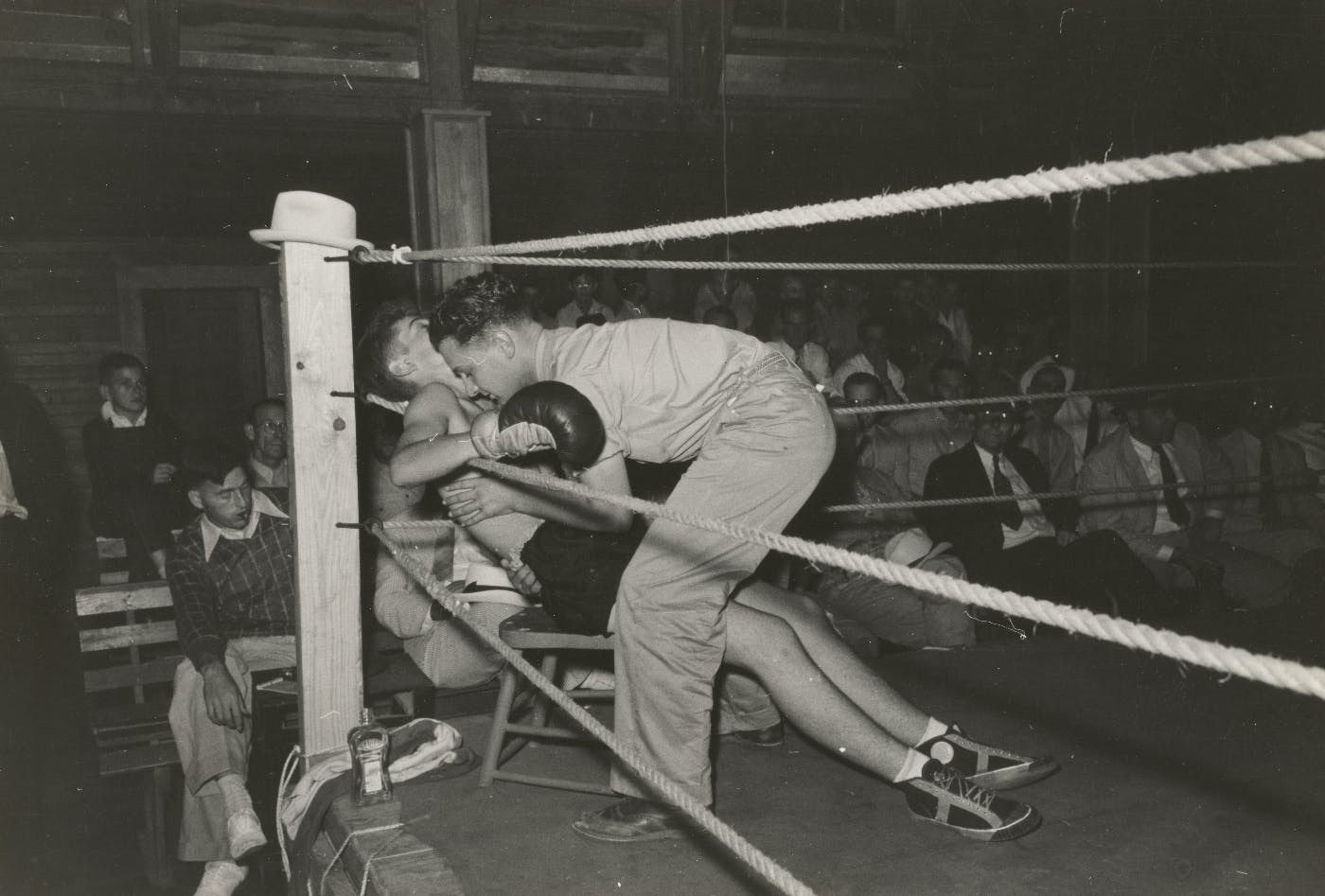

However, this pursuit can sometimes transform into a 'must-win' mentality, where winning becomes the sole measure of success, overshadowing the enjoyment of the game itself.
The holiday weekend was interesting. I ate a lot of good food, watched baseball, hung out with strangers at a street fair, and saw, up close and personal, the horrors of the “must win” mindset.
At this street fair, there were games that kids could play, sack races, tug-o-war, and the like. I was sitting eating something sure to take a quick 12 years off my life when I overheard a young boy talking to his father. The boy had just returned from taking second place in the sack race, and he was explaining to his father how great it felt and how much fun he had. The father said: “But you didn’t win, buddy, so it doesn’t count.”
Hearing this brought me rushing back to my childhood. The combination of that rush and the deep-fried, batter-covered, hot sauce-slathered culinary nightmare I was consuming caused me to experience a sort of blackout, and I didn’t catch the rest of the conversation. But I didn’t need to; I recalled having the same conversation with my father when I was younger.
When I was young, I played Little League baseball. I was on a team because every kid who tried out got placed on a team. I was not good—not at all—I was terrible. I was afraid of the ball, had zero hand-eye coordination, and was fat and unathletic. But I tried out year after year because my dad loved baseball, and he thought it was a good thing for kids to do. Be on a team, get exercise, and all that. My father played baseball when he was younger and was, by all accounts, an excellent catcher. So I played because, you know, fathers and sons.
I struggled through games, rode the pine most of the time, and in the games I did play, when I made a play in the outfield or hit the ball, not GOT A HIT, but hit the ball, I was thrilled. After one of those games, I would say did you see that play or I hit the ball; I could see the disappointment on my dad’s face. He’d try to encourage but usually said the same thing; “But your team didn’t win.” or “But you don’t have that winning drive in you.”
I grew to hate baseball, and I watched as my brother, who was very good, and my dad traded stats and talked games and teams, and there I was, on the outside, sixty feet, six inches away.
It took years, but I realized I loved the game of baseball, no specific team, though I am a die-hard Red Sox fan. I just loved and still love baseball. A wooden bat league plays one block from my house, and I am at the park most nights.
In my later years, I would talk baseball with my father, and he’d be surprised I knew so much about it. That was great, but all the years of win, win, win, and having a winning attitude put distance between us, and I cannot help but think if the must-win attitude was not there, my father and I could have been closer.
That must-win, be-a-winner mindset has permeated not just sports but business as well, and since I witnessed it this weekend, I want to delve into it and discuss the problems with the always winning attitude.
The “Must Win” Mindset
In games and sports, the desire to win is often seen as a natural motivator, driving athletes to push their limits and strive for excellence. However, this pursuit can sometimes transform into a 'must-win' mentality, where winning becomes the sole measure of success, overshadowing the enjoyment of the game itself. This mentality can lead to heightened stress, performance anxiety, and even ethical dilemmas as individuals and teams prioritize victory at all costs.
Beyond the playing field, the 'must-win' mentality permeates workplaces, shaping organizational cultures and dynamics. In competitive industries, the pressure to outperform peers or achieve aggressive targets can create a hyper-competitive atmosphere. This environment may foster individual achievements but often comes at the expense of collaboration, creativity, and overall team morale. Employees may feel compelled to prioritize personal success over collective goals, fearing that any misstep could be perceived as failure.
The pervasive influence of this mentality in both games and workplaces highlights its broader societal impact, shaping how individuals perceive success and failure. It raises crucial questions about the balance between healthy competition and the enjoyment of the process, and the long-term sustainability of environments driven solely by the imperative to win.

Impact on Enjoyment
The relentless pursuit of winning can significantly overshadow the joy of playing games or engaging in work, transforming activities that should be sources of fulfillment into stressful endeavors focused solely on outcomes. In games and sports, the thrill of competition and the joy of participating can be overshadowed by the pressure to win at all costs. Athletes may find themselves consumed by anxiety, fearing failure or the consequences of not achieving victory. This anxiety not only detracts from their performance but also diminishes the enjoyment they derive from the sport itself.
Similarly, in workplaces, when winning becomes the sole focus, employees may lose sight of the process and intrinsic enjoyment of their work. Tasks that were once opportunities for learning, growth, and creative problem-solving can become mere means to achieve a predefined goal. This shift in focus can lead to burnout, as individuals prioritize short-term successes over sustainable, long-term contributions. Moreover, the constant pressure to win can stifle innovation and collaboration, as employees may hesitate to take risks or share ideas that deviate from the established path to victory.
Exploring this dynamic further, it becomes clear that the pursuit of winning, when unchecked, diminishes the joy of the process and limits the potential for personal and collective growth. By prioritizing outcomes over experiences, individuals and teams miss out on opportunities for skill development, camaraderie, and meaningful engagement with their activities.
Strain on Relationships
The pressure to win can profoundly strain relationships, whether in the context of family dynamics or professional collaborations. Drawing from my experience, my father's intense focus on winning in Little League baseball created a rift between us that persisted for years. His well-intentioned encouragement to excel and be victorious inadvertently overshadowed the joy of playing the sport. Instead of bonding over shared experiences on the field, our interactions became fraught with tension as I struggled to meet his expectations and reconcile my own enjoyment of the game with his competitive drive.
This experience highlights a broader dilemma: while competition can inspire growth and resilience, the relentless pursuit of victory can sometimes lead to negative consequences. In sports, the pressure to win can strain parent-child relationships, as expectations for success may overshadow the child's personal enjoyment and development. Similarly, in workplaces, colleagues may find themselves competing against each other rather than collaborating, fostering an environment where teamwork and mutual support take a backseat to individual achievements.
It's crucial to consider whether this pressure always fosters healthy competition or if it sometimes leads to detrimental outcomes. While competition can motivate individuals to strive for excellence, an excessive emphasis on winning can breed resentment, anxiety, and even unethical behavior. In sports, athletes may resort to unsportsmanlike conduct or performance-enhancing substances in pursuit of victory, compromising their integrity and tarnishing the spirit of fair play. In workplaces, the 'must-win' mentality can create a cutthroat culture where colleagues view each other as rivals rather than allies, undermining trust and camaraderie.
Reflecting on these dynamics prompts us to rethink how we approach competition in both personal and professional settings. By promoting a balanced approach that values growth, sportsmanship, and collaboration, we can mitigate the strain on relationships caused by the pressure to win. Emphasizing the journey as much as the outcome allows individuals and teams to derive satisfaction from their efforts and achievements, fostering healthier, more sustainable relationships built on mutual respect and shared goals.
Competitive Work Environments
The pervasive 'must-win' mentality in professional settings can create a high-stakes atmosphere where individual success is prioritized over teamwork, collaboration, and innovation. In industries driven by aggressive targets and performance metrics, employees may feel compelled to outperform their peers at all costs, fearing that any perceived failure could jeopardize their career advancement or job security.
This hyper-competitive environment often discourages collaboration, as colleagues may view each other more as competitors than collaborators. Instead of sharing knowledge and resources, individuals may hoard information or ideas in an effort to maintain a competitive edge. This siloed approach hinders cross-functional cooperation and stifles innovation as new ideas struggle to gain traction in a culture that values conformity to established norms and practices.
Moreover, the pressure to win can lead to a culture of fear and mistrust, where employees hesitate to take risks or challenge existing methods. Innovation thrives in environments where experimentation is encouraged, and failure is seen as a stepping stone to success. However, in 'must-win' cultures, the fear of failure can paralyze creativity and deter employees from exploring unconventional solutions or pursuing ambitious projects.
The detrimental effects of a 'must-win' mentality extend beyond individual performance to organizational culture and employee well-being. Burnout rates may increase as employees work long hours and sacrifice work-life balance to pursue short-term goals. The emphasis on winning can also undermine morale, as team dynamics become strained by internal competition and a lack of support for collective success.
To mitigate these challenges, organizations can cultivate a more balanced approach that values collaboration, creativity, and long-term strategic thinking. By fostering a culture where employees are empowered to collaborate across teams, share insights openly, and experiment with new ideas, organizations can harness the collective intelligence and creativity of their workforce. Emphasizing shared goals and celebrating collective achievements can also promote a sense of unity and purpose, fostering a supportive environment where employees feel motivated to innovate and contribute to long-term organizational success.
Balancing Competition and Enjoyment
Achieving a balance between healthy competition and enjoying the process is essential for sustaining motivation, fostering creativity, and promoting overall well-being—whether in games or professional settings. While competition can spur individuals to push their limits and strive for excellence, an excessive focus on winning can detract from the intrinsic joy and satisfaction derived from participating in activities.

Strategies for Balancing Competition and Enjoyment
- Emphasize Personal Growth: Encourage individuals to focus on personal improvement and development rather than solely on outcomes. Celebrate milestones and progress made along the way, fostering a sense of achievement regardless of the final result. This approach shifts the focus from external validation to intrinsic motivation, promoting a healthier mindset towards competition.
- Promote Collaboration: Create opportunities for collaboration and teamwork, emphasizing shared goals and collective success. Encourage open communication, knowledge sharing, and mutual support among team members. By fostering a collaborative environment, organizations can harness the diverse skills and perspectives of their workforce to achieve innovative solutions and sustainable growth.
- Value Process Over Outcome: Shift the organizational focus from solely measuring success by outcomes to valuing the journey and process of achieving goals. Encourage experimentation, creativity, and learning from failures as essential components of growth and development. This approach cultivates a culture where individuals feel empowered to take calculated risks and explore new ideas without fear of repercussions.
- Celebrate Effort and Sportsmanship: Recognize and celebrate effort, sportsmanship, and ethical conduct as integral to success. Encourage individuals to demonstrate integrity, respect for others, and fair play in competitive and collaborative settings. This reinforces positive behaviors and promotes a culture of mutual respect and professionalism.
- Provide Supportive Leadership: Leaders play a crucial role in setting an organization's tone and culture. Encourage leaders to demonstrate empathy, fairness, and transparency in their interactions with employees. Supportive leadership fosters trust, boosts morale, and creates a psychologically safe environment where individuals feel empowered to contribute their best work.
Importance of a Supportive Environment
Fostering a supportive environment where learning, growth, and well-being are prioritized alongside achieving goals is crucial for sustaining motivation and engagement. Organizations that prioritize employee development, offer opportunities for continuous learning, and promote work-life balance tend to attract and retain talented individuals committed to the organization's long-term success.
By embracing a holistic approach that values competition and enjoyment, organizations can create a culture where individuals thrive, innovation flourishes, and collective achievements are celebrated. Ultimately, striking a balance between healthy competition and enjoying the process fosters a dynamic and resilient organizational culture that adapts to change and achieves sustainable success.
Summing Up
Reflecting on the impact of a 'must-win' mentality in games and workplaces reveals profound insights into how our pursuit of success influences our enjoyment, relationships, and overall well-being. From personal experiences to broader societal norms, the pressure to win can sometimes overshadow the intrinsic joy and satisfaction derived from participating in activities.
In games and sports, the thrill of competition can inspire individuals to push their limits and strive for excellence. However, when winning becomes the sole focus, athletes may lose sight of the camaraderie, personal growth, and enjoyment that come from simply playing the game. Similarly, in workplaces, the relentless pursuit of victory can create a hyper-competitive environment that stifles collaboration, creativity, and employee morale. This competitive mindset can strain relationships, hinder innovation, and contribute to burnout as individuals prioritize short-term outcomes over long-term sustainability.
Striking a balance between healthy competition and enjoying the process is essential for fostering a positive and productive environment. By valuing personal growth, collaboration, and ethical conduct alongside achieving goals, organizations can cultivate a culture where individuals feel motivated, supported, and inspired to contribute their best efforts. Celebrating milestones, promoting teamwork, and emphasizing the learning journey are crucial steps toward creating a workplace where individual and collective achievements are celebrated.
Ultimately, embracing a holistic approach that values competition and enjoyment enables individuals and teams to thrive, innovate, and contribute meaningfully to their respective arenas. By reevaluating our attitudes toward success and redefining what it means to 'win,' we can create environments that prioritize well-being, foster resilience, and sustain long-term success.
